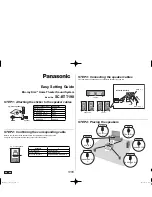
www.duralloy.net.au
|
1300 369 456
15
MULTIMIG 200 PFC MV
OWNER’S MANUAL
Other weld problems can be reduced by checking the following points.
High Tensile and Alloy Steels
The two most prominent effects of welding these steels are the
formation of a hardened zone in the weld area, and, if suitable
precautions are not taken, the occurrence in this zone of under-
bead cracks. Hardened zone and underbead cracks in the weld
area may be reduced by using the correct electrodes, preheating,
using higher current settings, using larger electrodes sizes, short
runs for larger electrode deposits or tempering in a furnace.
Manganese Steels
The effect on manganese steel of slow cooling from high
temperatures causes embrittlement. For this reason it is
absolutely essential to keep manganese steel cool during
welding by quenching after each weld or skip welding to
distribute the heat.
Cast Iron
Most types of cast iron, except white iron, are weldable. White
iron, because of its extreme brittleness, generally cracks when
EFFECTS OF MMA WELDING VARIOUS MATERIALS
attempts are made to weld it. Trouble may also be experienced
when welding white-heart malleable, due to the porosity caused
by gas held in this type of iron.
Copper and Alloys
The most important factor is the high rate of heat conductivity of
copper, making pre-heating of heavy sections necessary to give
proper fusion of weld and base metal.
Types of Electrodes
ARC Welding electrodes are classified into a number of groups
depending on their applications. There are a great number of
electrodes used for specialised industrial purposes which are not
of particular interest for everyday general work. These include
some low hydrogen types for high tensile steel, cellulose types
for welding large diameter pipes, etc. The range of electrodes
dealt with in this publication will cover the vast majority of
applications likely to be encountered; are all easy to use.














































